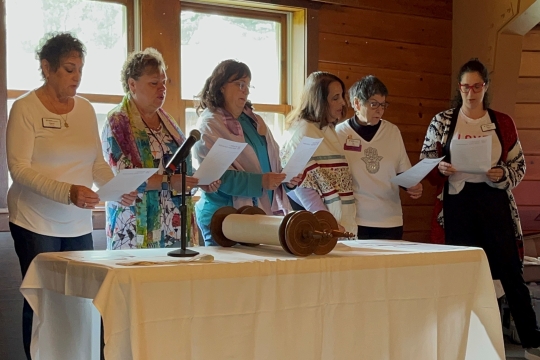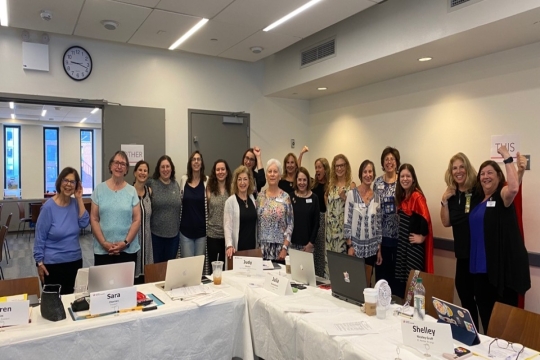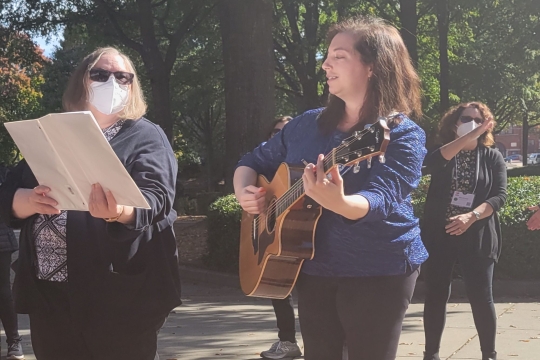“Adonai spoke to Moses, saying: Tell the Israelite people to bring Me gifts: you shall accept gifts for Me from every person whose heart is so moved.” (Exodus, 25:1)
This, of course, is what we like to think of as the original congregational building fund. God is asking the people to bring everything the Israelites will need to build the Tabernacle – the house of worship in the desert.
As a bat mitzvah, I thought of this parashah as the “cubits” parashah. How big was the table of acacia wood? Two cubits long, one cubit wide and a cubit and a half high. How big were the cloths that covered the Tabernacle? Twenty-eight cubits long and four cubits wide. It was an architect’s dream, but a 13-year-old’s nightmare. Think of the potential for standardized test math questions here!
How big is a cubit? Potentially half a yard. While the future architects and interior designers of the world might read the building and decorating plans with great interest, this future journalist was more interested in the gifts that the people were to bring and their motivation behind giving the gifts.
As leaders in our congregations and the Movement, we are often put in the position of asking our members to give as they are so moved. We need their monetary gifts for sustainability. Our doors would shutter without them.
Sometimes, though, we forget a different kind of gift that our members bring. They give the gift of their time, their knowledge and their enthusiasm. Do we value those as much as we value the gift that comes with a dollar sign in front of it and many numbers behind it?
In my life as a leader in my sisterhood and my congregation, I have known many women who are the backbone of my sisterhood or congregation that give of themselves repeatedly, but who could never write a check. They roll up their sleeves each month and make dinner for the congregation, they start Alzheimer’s respite groups, they hand out prayer books each Friday night, they chair committee after committee, and whenever you look around for help, they are there.
More than a decade ago, my sisterhood decided we needed to do better about including all the women in our congregation. We created a tiered-dues system. Many people thought the goal of that system was to create more opportunities for larger gifts. It did that, and became a very successful fundraiser, but the real point was to give women who could not afford $36 a year a way to belong. They just had to fill out our membership form like everyone else. They checked a box that said, “I cannot afford dues at this time.” We never wanted a woman to have to choose sisterhood dues over groceries for her children.
Are you honoring the gifts that all women bring to your sisterhood? Do you remember to say thank you as much to the person who gives of her time and talent as the person who writes the big check?
Are you making sure that they are developed and cared for just like you might develop future donors? Have you created a way to find out what your talent pool is in your congregation? Who has website building expertise? Who likes to cook? Who gardens? Who is crafty? Who would make a great speaker? Who has younger children and an interest in activities for them? Who is a great organizer of stuff? Who understands accounting or fundraising?
We need all women in our groups. Everyone, no matter what their W-2 says, adds value to our communities.
From that initial group of women who couldn’t afford dues came our sisterhood leadership. They gave to us in time and talent tenfold and then some.
Nicole Villalpando serves on the Executive Committee of Women of Reform Judaism. She is a past district president of the Southwest District and a past sisterhood president at Congregation Beth Israel in Austin, Texas.
Related Posts

Parashat Yom Rishon shel Rosh HaShanah

Cultivating a Culture of Accountability and Belonging


